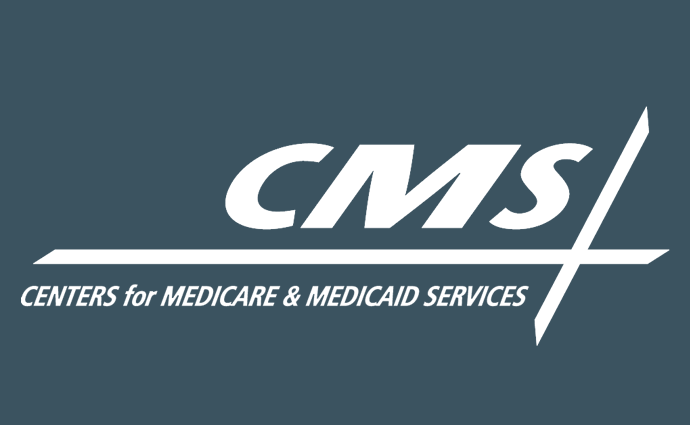CMS Temporarily Lowers Individual, Small Group Exchange Premiums
CMS urged states to follow suit in bringing down individual and small group exchange premiums by offering premium credits.

Source: CMS Logo
- The Centers for Medicare and Medicaid Services (CMS) announced that it will allow payers to use premium credits to temporarily lower the individual and small group exchange premiums for 2020.
“CMS is providing this additional flexibility to allow health insurance issuers in the individual and small group markets to temporarily offer premium credits for 2020 coverage to support continuity of coverage for individuals, families and small employers,” the agency explained in the guidance.
Specifically, the guidance is designed to assist those who may not be able to cover their premiums due to coronavirus-related unemployment or loss of income.
Payers who wish to comply with this guidance must go to an insurance regulator for approval and receive permission from the appropriate Affordable Care Act exchange.
In order to offer premium credits, payers must provide the premium amount that the credits would cover and the months to which the credits would apply. Also, the credit percentage must be identical for all members in the payer’s market—both inside and outside the exchange. CMS did not set a limit on the number of months that a credit could last, as long as it covered full months and finished by the end of 2020.
Credits cannot be retroactive nor can plans leverage these credits to reduce the amount that enrollees contribute toward coverage for certain types of abortions.
CMS promised to clarify how this guidance would affect medical loss ratio and risk adjustment reporting requirements. Until the agency issues that rule, payers will need to use a template—which CMS provided — to report any premium credits they intend to apply under this guidance. Reports on premium credits must also go out to the Internal Revenue Service (IRS).
No matter what month payers plan to offer the premium credits, they must submit these templates by October 1, 2020.
However, this temporary format may present a technical challenge for payers. CMS warned that the premium credits will not appear in plans’ premiums when consumers compare plans on HealthCare.gov, both for federally facilitated exchanges or state-based exchanges on federal platforms.
However, the format could also help payers by lowering their user fee for participating in the Affordable Care Act exchange. The Department of Health and Human Services will calculate user fees based on the premium that payers charge enrollees, including the premium credit.
Payers in states that have a state-based exchange — a platform for selling exchange plans solely run by the state, not on HealthCare.gov — will have to follow their states’ rules regarding the request of premium credits and related requirements.
CMS encouraged states to follow the agency’s lead and offer premium credits.
Many Americans are struggling to keep up with bill payments as a result of the coronavirus pandemic, not the least of which are healthcare coverage premiums.
During the first peak of the pandemic in March and April 2020, health plan costs prevented many from obtaining healthcare coverage. Nearly three-quarters of the respondents to a Sidecar Health study conducted in March said that cost was a barrier for finding coverage.
Payers started offering extended payment grace periods for both employers and members in the first quarter of 2020. UnitedHealth Group saw its premium extensions due on April 1 triple their usual percentage of the premium base, hitting three percent as of April 15.
Other payers began offering premium credits months before CMS published this guidance. In May 2020, Priority Health announced that funds from premiums, which normally would go toward non-urgent care but lay dormant due to pause on nonessential procedures and services, would go toward premium credits for financially struggling members instead.
CMS did not say when it would publish the further clarifying guidelines around the template and directions for payers in states that have their own exchange platforms but said that these would come soon. The agency invited payers to contact them with questions.
